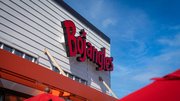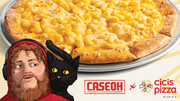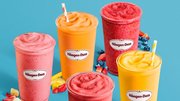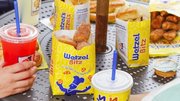Article
QSRs must mind their brand as they look ahead
Preparing for the economic recovery means making smart moves in marketing and branding.

October 8, 2009
As quick-service restaurants hone their strategies to prepare for the economic turnaround, how they market their brand will be an important consideration. Industry experts foresee that as consumers come out of what economists are now calling the Great Recession, their spending habits may be forever changed.
"As the economy rebounds, consumers will be less willing to go out of their way for a deal, so QSRs need to align their brand proposition with other valuable currencies — time, service and convenience," said Tom Denari, president of advertising agency Young & Laramore. "While it will be tough for restaurants to move away from lower price points, there are other opportunities to differentiate their offering and create value from their services," including making a commitment to superior customer service and making hot food travel better.
Denise Lee Yohn, brand and business consulting partner and owner of Denise Lee Yohn Inc., recommends QSRs do that by taking a lesson from discount retail leader Walmart, including:
- Upgrade product selection and quality — Walmart is doing this by bringing in more/better brand names, but QSRs can do this by ensuring they have a full pipeline of new products and/or product improvements. QSRs should make sure they have compelling product news to pique interest and generate demand.
- Improve the customer experience — Walmart is redesigning its stores (wider aisles, better lighting, etc.) to improve the ambiance and shopping experience across the board. In the same way, QSRs should audit and assess all aspects of their customer experience (service, facility, packaging, etc.) and identify ways to make it easier and more enjoyable and exciting.
- Appeal to other drivers in addition to price — Walmart is advancing its environmental practices and social responsibility messaging in part because it believes these impact brand perceptions and will become increasingly important to consumers. QSRs have a similar opportunity to shift their focus from price and promotions alone and to appeal to other drivers like convenience, fun, community involvement, etc.
For example, McDonald's has focused on value as well as its social responsibility efforts during the recession, including the announcement that its company headquarters had received Leadership in Energy and Environmental Design Platinum certification from the U.S. Green Building Council.
Additionally, at the beginning of the downturn, McDonald's began to showcase the natural sourcing of its ingredients with advertising that showed its beef coming from cows and its side items coming from the farm. During the recession, it focused on the value of products such as its new McCafé espresso-based coffee line, as well as its Dollar Menu. As the turnaround begins, the natural sourcing ad campaign is returning to television as part of the brand's marketing mix.
Shift to quality over quantity
David Menzies, president of Menzies Consulting Inc., said value will remain important to consumers, but they will shift their focus from looking to get the most out of their dollar to the best quality at the best price.
"If people have money to spend, they're going to spend it based on want rather than need, and they want quality," he said. "During tough economic times, the trend was reversed, with consumers spending on need rather than want."
For example, Carl's Jr. and Hardee's have put their focus on reminding consumers that the sister brands' premium burgers are a value, not only when compared to casual dining but other QSRs as well. The brands pit their Big Carl and Big Hardee sandwiches side by side against McDonald's Big Mac to demonstrate the regional chains' burgers' superior quality and lower price.
Stay brand focused
Lisa B. Tilt, president of Full Tilt Consulting, warns companies must stick to their brand strategy while considering their next move. She also offered these strategic tips:
- Don't lose sight of your long term brand positioning, especially for QSRs that have a history with consumers. Avoid knee-jerk reactions, such as excessive couponing, and major shifts in brand strategy. It will only confuse consumers and likely take longer to recover from than this recession. It is more critical now than ever to make sure that all sectors of the marketing/communications team are aligned and speaking consistently in what they are saying and how they are saying it.
- Retaining, motivating and attracting talent are the trifecta for a solid HR strategy (note that two of the three focuses on current employees). Work on keeping the talent you do have so that when the tide turns operators aren't scrambling to fill the ranks. Many organizations are foregoing the professional development programs, morale boosting and other factors that keep employees engaged, not just hanging around. Managers think "they aren't going anywhere because there's nowhere to go." Not true for your top employees. Internal communications focused on employee engagement should be happening right now. They will be your biggest recruiting assets when you are ready to hire again.
At Popeyes Louisiana Kitchen, for example, more than 10 percent of its corporate team has been employed with the company for more than 20 years, Tilt said. The organization's focus has remained solidly on employee engagement, not just retention, across the system and positive revenue growth has been the result. Popeyes' domestic same-store sales comps were 4.3 percent last quarter, far outpacing the rest of the QSR industry. These results were gained in light of the weakest QSR traffic quarter since Q2 2001. Employee engagement continues to be a key element of the brand's strategy looking ahead to 2010.
 ChatGPT
ChatGPT Grok
Grok Perplexity
Perplexity Claude
Claude








